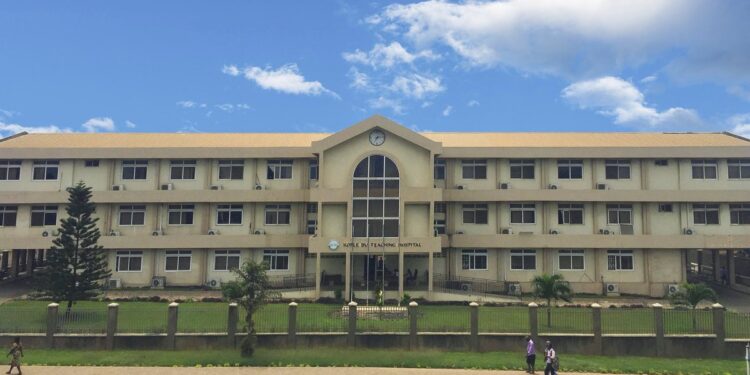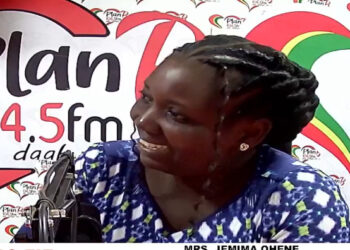The Child Health Department of the Korle Bu Teaching Hospital (KBTH) in Accra has recorded a rare case of Wilson’s Disease in a 13-year-old boy, making it the first documented instance of this condition in Ghana, Graphic.com,gh reports.
Wilson’s Disease, a fatal genetic disorder, affects approximately one in 30,000 people in developed countries.
The diagnosis was made after the boy’s mother, a trader, noticed his deteriorating handwriting, prompting medical investigation.
Professor Ebenezer Badoe, Head of the Neuro-Developmental Clinic at KBTH, confirmed the diagnosis following extensive testing.
Wilson’s Disease
Wilson’s Disease is an inherited disorder that leads to excessive accumulation of copper in the body’s organs, particularly the liver, brain, and eyes.
The condition occurs due to the body’s inability to eliminate copper properly, causing toxic buildup which can be life-threatening.
Symptoms generally emerge between ages 12 and 23, presenting as swelling, fatigue, abdominal pain, and poorly coordinated movements.
The boy’s diagnosis deviated from the usual presentation, as he had not experienced jaundice, a common initial symptom.
Instead, his condition had advanced, affecting his brain and motor skills, leading to noticeable changes in his handwriting and gait.
Further symptoms included the presence of Kayser-Fleischer rings, a gray ring around the cornea caused by copper deposits in the eyes.
The disease requires lifelong treatment to manage copper levels in the body. Professor Badoe noted that the boy’s treatment, which costs GH¢450 per month, could enable him to live a normal life. However, stopping treatment could result in acute liver failure and potentially death.
Genetic Testing and Inheritance
Wilson’s Disease is passed down through autosomal recessive inheritance, meaning both parents must carry the gene for the child to be affected.
Advanced genetic testing, funded by the NGO Reg Disease Ghana and conducted in the United States, confirmed that both parents were carriers, verifying the boy’s diagnosis.
Professor Badoe has appealed to the public for financial support to sustain the boy’s treatment.
Despite improvements after two months of medication, there is a dire need for continuous treatment to prevent relapse and fatal complications.
The neurologist emphasized the importance of early detection, urging teachers and caregivers to be vigilant and report any unusual changes in children’s behavior or abilities.
He commended the boy’s mother for her attentiveness, which led to early medical intervention.
The boy’s mother recounted her journey, initially noticing her son’s reluctance to complete homework and his slow progress in class.
Her persistence led to consultations with a nurse and subsequent referrals to specialized medical facilities, culminating in the critical diagnosis at KBTH.
This case highlights the crucial role of parental vigilance and the need for accessible healthcare resources to diagnose and treat rare diseases like Wilson’s Disease.
The community is encouraged to support such initiatives to ensure the well-being of affected children.
For those willing to contribute to the boy’s ongoing treatment, please contact the Child Health Department at Korle Bu Teaching Hospital. Your support can make a significant difference in the life of this young boy and his family.










Discussion about this post